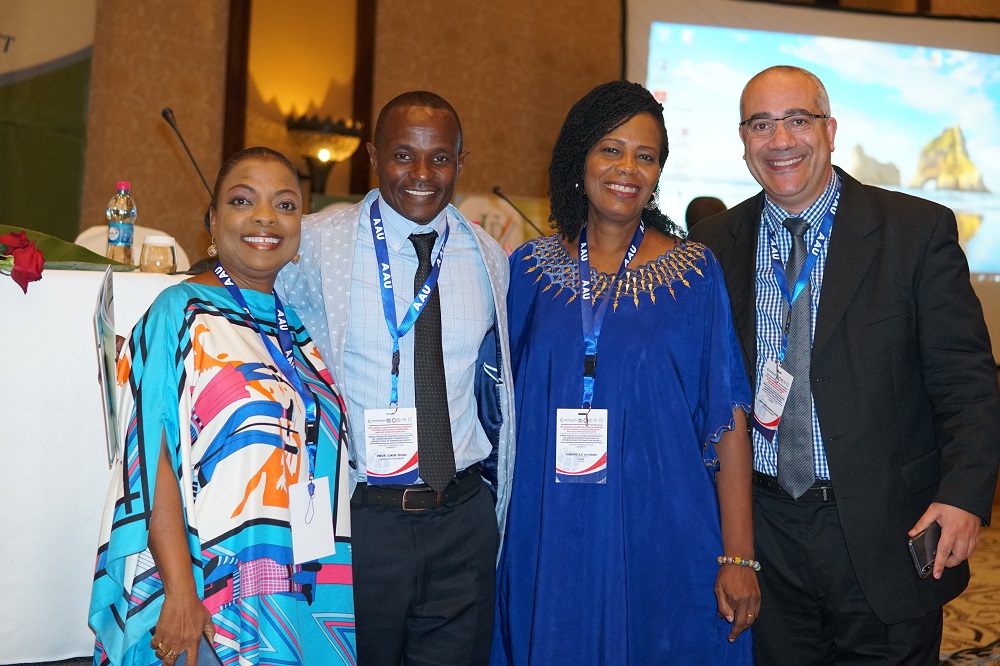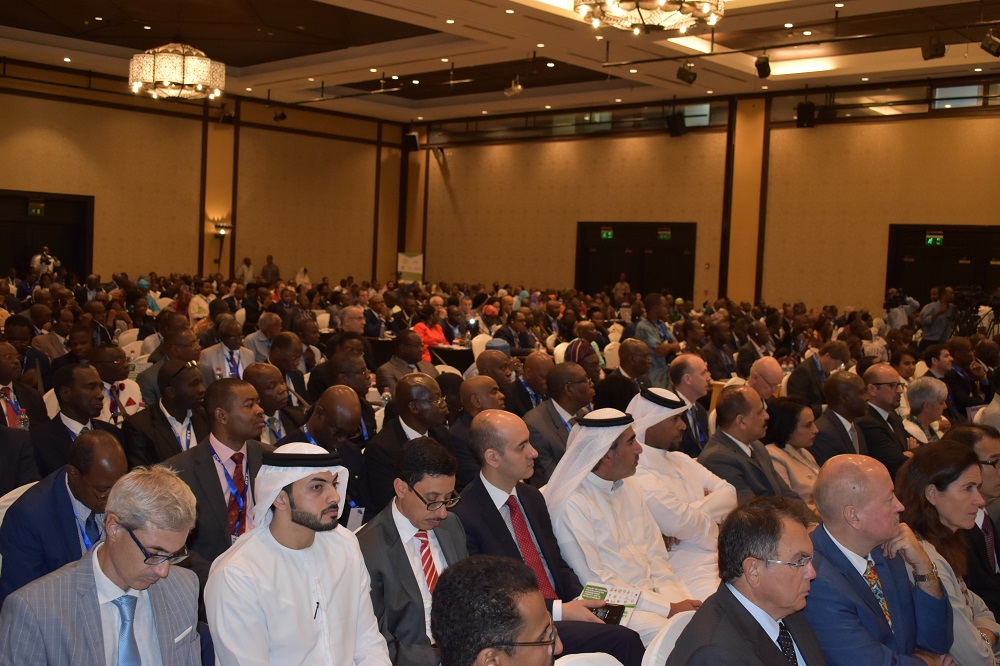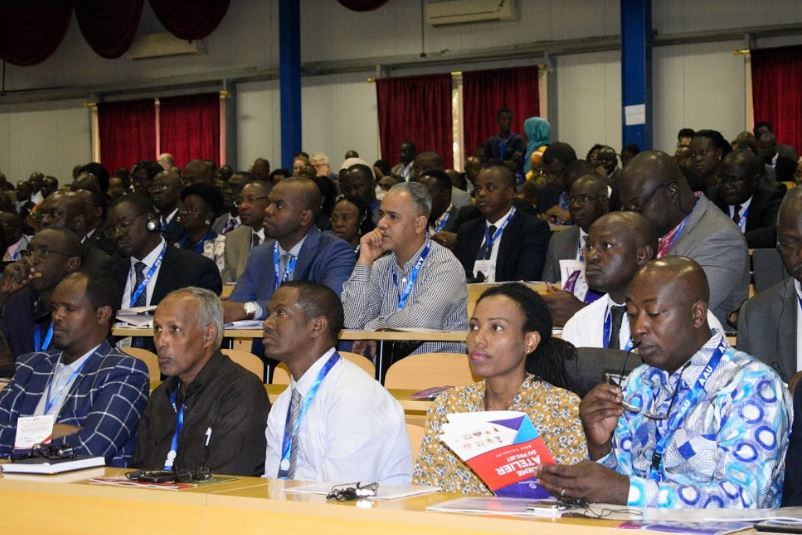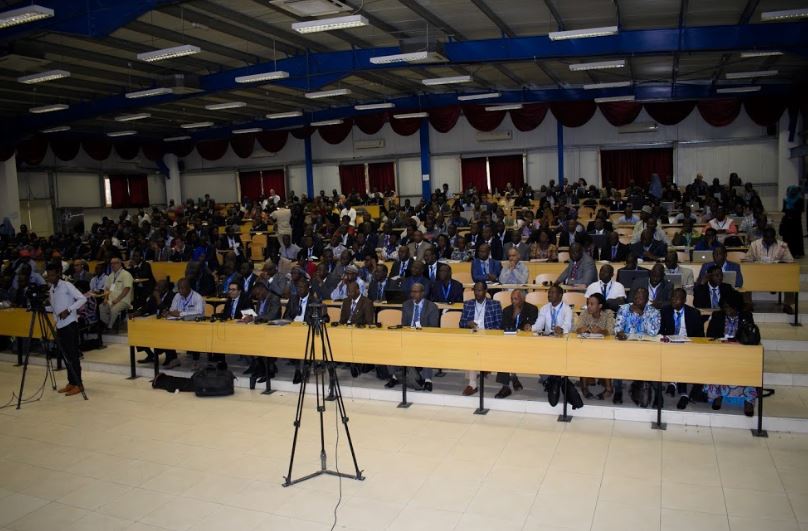The C-CoDE Initiative kicks off to build competencies in digital education
In September 2021, the Association of African Universities under the Africa Higher Education Centers of Excellence for Development Impact (ACE Impact) Project in collaboration with the EPFL – École polytechnique fédérale de Lausanne (Switzerland) commenced the implementation of the Centers of Competence in Digital Education (C-CoDE) Initiative.
Six (6) ACE Impact host Universities were competitively selected and are being supported to establish Centers of Competence in Digital Education on their campuses to promote the sustainable integration of digital education in the teaching processes, as a means of strengthening the quality of teaching as well as the competencies of graduates.
A total of 12 applications were received from six different countries: eight from anglophone and four from francophone universities. The six selected universities are the National Open University of Nigeria; University of Nigeria, Nsukka; Bayero University, Kano, Nigeria; University of Energy and Natural Resources, Sunyani, Ghana; Université Joseph Ki-Zerbo, Ouagadougou, Burkina Faso; and Université d’Abomey-Calavi, Cotonou, Bénin.
The participating ACE Centers in these universities include the Africa Centre of Excellence on Technology Enhanced Learning (ACETEL), the Africa Centre of Excellence for Sustainable Power and Energy Development (ACE-SPED), the Africa Center of Excellence in Population Health and Policy(ACEPHAP); the Center for Dryland Agriculture(CDA), the Regional Center for Energy and Environmental Sustainability (RCEES); CEA-Centre d’Etudes, de Formation et de Recherche en Gestion des Risques Sociaux (CEFORGRIS) and CEA-SMIA (Centre d’Excellence Africain en Sciences, Mathématiques, Informatique et Application.
This pilot initiative will provide the participating institutions with the training and coaching to transform their educational curricula by integrating modern digital education methods. Each selected University will commit part of their funding from their ACE Impact project (s) towards acquisition of the necessary equipment and a venue to house their C-CoDE. Thirty (30) faculty, three (3) pedagogy engineers and two (2) technical specialists have been identified from each participating university and are being trained. This pilot is being implemented from September 2021 to July 2022.
The broader goal is for the selected Centers to eventually serve other African higher education institutions using a training-the-trainers model, within the broader ACE Impact project portfolio and beyond – across the Sub-Saharan Africa (SSA) region.
On September 21 and 22, the participating universities were engaged in meetings to provide additional information and to launch the operational aspects of the project. Each participating university has identified and confirmed three faculty members that are being trained as experts in digital education. The selected trainees were given the opportunity to familiarize themselves with the Open edX training platform and training materials during the preparation week.
The first workshop for the anglophone participants took place from 4-15 October 2021. The first workshop for the francophone participants is going on from 18-29 October 2021.
Training is innovatively delivered using the flipped classroom style. The quality and engaging learning materials and activities were prepared in advance and made available on the EPFL Open edX platform. The participants study and prepare themselves ahead of the live sessions. During the virtual live sessions, the facilitators provide clarifications concerning the content and learning activities that participants would have gone through. Live sessions are used to building and sharing common knowledge through group activities, live discussions, and presentations. Participants are also exposed to and encouraged to use a variety of online tools and technologies to interact and put in practice teaching paradigms.

Contact Information
For further information, kindly contact Dr Sylvia Mkandawire via smkandawire@aau.org and copy Mr Yann Kerloch yann.kerloch@epfl.ch
Background information
The Africa Higher Education Centres of Excellence (ACE) Project is a World Bank initiative in collaboration with governments of participating countries to support Higher Education institutions in specializing in Science, Technology, Engineering and Mathematics (STEM), Agriculture, and Health. The Project aims to promote regional specialization among participating universities in areas that address specific common regional development challenges. It also strengthens the capacities of these universities to deliver high quality training and applied research as well as meet the demand for skills required for Africa’s development. Based on the initial successes, the World Bank and the French Development Agency (AFD) in collaboration with the African governments, launched the ACE Impact Project in 2018 to strengthen post-graduate training and applied research in existing fields and support new fields that are essential for Africa’s economic growth. There are 43 ACEs (25 new ones and 18 from ACE I); 5 Emerging Centers;1 “top up” center in Social Risk Management; and 5 Colleges and Schools of Engineering.
About the Association of African Universities (AAU)
The Association of African Universities is an international non-profit, non-governmental organization created by African Universities to promote cooperation among them on the one hand, and between them and the international academic community on the other. Created in 1967, the AAU is the voice of higher education in Africa. AAU aims to improve the quality of African higher education, and to strengthen its contribution to Africa’s development by supporting the core functions of higher education institutions and facilitating critical reflection and consensus building on issues affecting higher education in Africa. The AAU is the Regional Facilitation Unit of the Africa Centres of Excellence project.
About the World Bank Group
The World Bank Group is a multilateral development institution that works to reduce poverty. Its subsidiary IDA (International Development Association) finances the Africa Centres of Excellence series of projects. Established in 1960, IDA helps the world’s poorest countries by providing grants and low to zero-interest loans for projects and programs that boost economic growth, reduce poverty, and improve poor people’s lives. IDA is one of the largest sources of assistance for the world’s 75 poorest countries, 39 of which are in Africa. Resources from IDA bring positive change to the 1.5 billion people who live in IDA countries. Since 1960, IDA has supported development work in 113 countries. Annual commitments have averaged about $18 billion over the last three years, with about 54 percent going to Africa.
About EPFL (École polytechnique fédérale de Lausanne)
EPFL is Europe’s most cosmopolitan technical university with students, professors, and staff from over 120 nations. Founded in 1853, the École Spéciale de Lausanne was renamed École polytechnique fédérale de Lausanne in 1969. EPFL is a research-intensive institution specializing in Science, Technology and Engineering with a strong focus on Life Science and Digital Sciences. It is one of the two Swiss Federal Institutes of Technology, and it has three main missions: education, research and technology transfer. EPFL is a bilingual Technological University (French-English) located on the shores of Lake of Geneva in Lausanne (Switzerland). EPFL works together with an extensive network of partners including other universities and institutes of technology, secondary schools and colleges, industry and economy, political circles and the general public, to bring about real impact for society.




